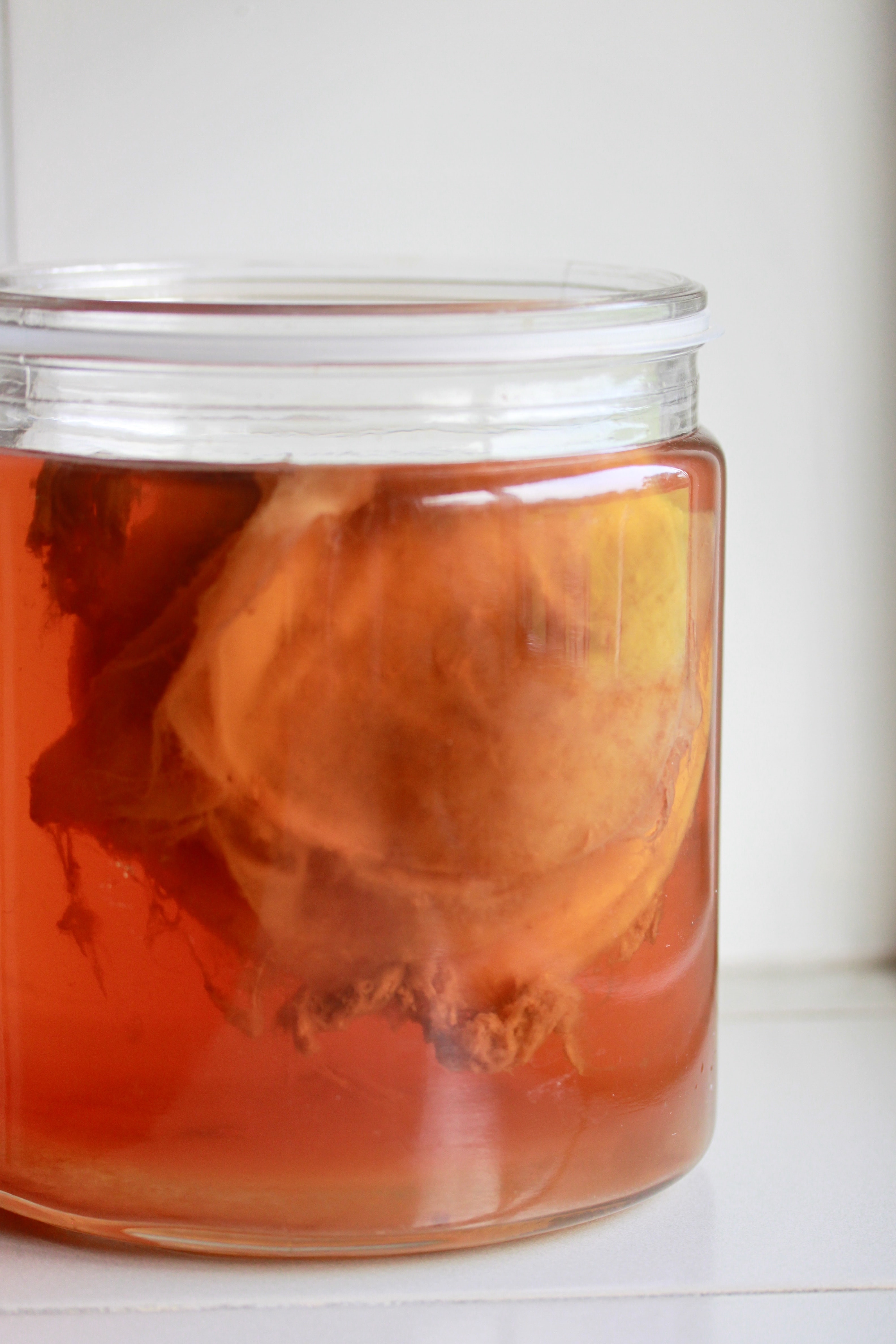Kombucha is technically already hard, ranging somewhere close to 1% in ABV per can. Kombucha is made with sugar to feed the scoby (symbiotic culture of bacteria and yeast)
which puts out all the probiotics and what not into the tea. Fruit is added in the second step when you bottle and allow to ferment further and build up carbonation. Without sugar, you have no yeast and bacteria. Without yeast and bacteria, you have no kombucha. Most of the sugar added to the tea is consumed during the fermentation process. Hard kombucha is better because it is fermented longer and more sugar is consumed in the process. “Rather than the traditional strain of bacteria and yeasts, hard kombucha uses wine yeast to ferment, which creates quite a potent alcoholic beverage,” says Cameron Fiorenza, BS-NDTR and Culinary and Nutrition Specialist at Openfit.
Sold primarily as an alternative to sparkling wine (and looks like it is competing as a more “healthy” or “holistic” version of a hard seltzer. Most hard kombucha’s ABV will be a few percentage points higher than a seltzer, but it will also end up having more calories than a seltzer. After scouring the corners of the internet to see what kind of response the hard kombucha will have to your system in the same sense a regular kombucha will clean out your gut. Answers were all over the place, probably dependent on health and tolerance. While the gut friendly probiotics are bacteria that helps with digestion, alcohol disrupts that balance.
Don’t look for these to be the magic elixir of life or the fountain of you. Definitely keep these chilled. Furthermore, it seems as a good substitute for a lot of people is just pouring a shot or so of vodka into their kombucha. In the same way, not all kombuchas are winners, not all hard kombuchas are winners. You might be better off sticking with a kombucha you like and adding something a little stronger to it.

